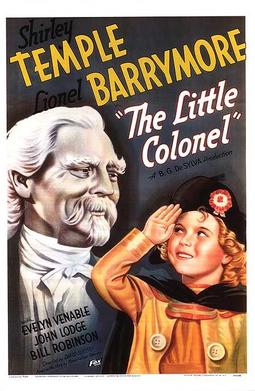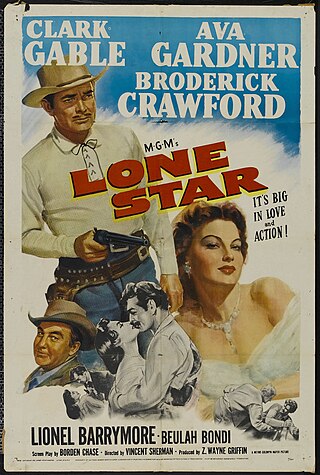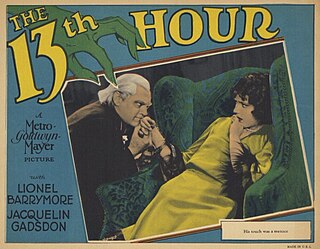Related Research Articles

Lionel Barrymore was an American actor of stage, screen and radio as well as a film director. He won an Academy Award for Best Actor for his performance in A Free Soul (1931), and is known to modern audiences for the role of villainous Mr. Potter in Frank Capra's 1946 film It's a Wonderful Life.
The year 1946 in film involved some significant events, including the release of the decade's highest-grossing film, The Best Years of Our Lives, which won seven Academy Awards.
The following is an overview of 1933 in film, including significant events, a list of films released, and notable births and deaths.

Ethel Barrymore was an American actress and a member of the Barrymore family of actors. Barrymore was a stage, screen and radio actress whose career spanned six decades, and was regarded as "The First Lady of the American Theatre". She received four nominations for the Academy Award for Best Supporting Actress, winning for None but the Lonely Heart (1944).

The Little Colonel is a 1935 American comedy drama film directed by David Butler. The screenplay by William M. Conselman was adapted from the children's novel of the same name by Annie Fellows Johnston, originally published in 1895. It focuses on the reconciliation of an estranged father and daughter in the years following the American Civil War. The film stars Shirley Temple, Lionel Barrymore, Evelyn Venable, John Lodge, Bill Robinson and Hattie McDaniel.

Dinner at Eight is a 1933 American pre-Code comedy-drama film directed by George Cukor from a screenplay by Frances Marion and Herman J. Mankiewicz, based on George S. Kaufman and Edna Ferber's 1932 play of the same title. The film features an ensemble cast of Marie Dressler, John Barrymore, Wallace Beery, Jean Harlow, Lionel Barrymore, Lee Tracy, Edmund Lowe, and Billie Burke.

Lone Star is a 1952 American Western film starring Clark Gable, Ava Gardner, Broderick Crawford, Ed Begley, and Lionel Barrymore as President Andrew Jackson. The film also marks the first (uncredited) screen appearance by then-13-year-old George Hamilton, playing beside Barrymore in the role of Jackson's servant.

Carolina is a 1934 American pre-Code romantic comedy film directed by Henry King, with a screenplay by Reginald Berkley based on the 1931 play The House of Connelly by Paul Green, and starring Janet Gaynor, Lionel Barrymore, and Robert Young. The supporting cast features Stepin Fetchit and Shirley Temple in a romanticized story about a post-Civil War family in the fading Southern United States, who is regaining its former prestige.

Friends is a 1912 film written and directed by D. W. Griffith and starring Mary Pickford, Henry B. Walthall, Lionel Barrymore, and Harry Carey. Walthall and Barrymore portray two old friends who each wind up involved with a beautiful girl (Pickford) who lives above a mining camp saloon.

Oil and Water is a 1913 film directed by D. W. Griffith and starring Blanche Sweet. The supporting cast includes Henry B. Walthall, Lionel Barrymore, and Harry Carey. A stage dancer (Sweet) and a serious-type homebody (Walthall) discover, after marriage, that their individual styles don't mesh. The movie includes elaborate dance sequences.

The Informer is a 1912 American short drama film directed by D. W. Griffith and featuring Mary Pickford, Henry B. Walthall, Harry Carey, Lionel Barrymore, Dorothy Gish, and Lillian Gish. It was filmed in the Pike County town of Milford, Pennsylvania. Prints of the film survive at the film archive of the Library of Congress.
The Wrong Bottle is a 1913 American drama film featuring Harry Carey.

Fighting Blood is a 1911 American short silent Western film directed by D. W. Griffith and starring George Nichols. It features Lionel Barrymore, Mae Marsh and Blanche Sweet. Lionel Barrymore's presence in the film is debatable as biographers say he's not in existing prints. A print of the film survives in the film archive of George Eastman House Motion Picture Collection.

Rasputin and the Empress is a 1932 American pre-Code film directed by Richard Boleslawski and written by Charles MacArthur. Produced by Metro-Goldwyn-Mayer (MGM), the film is set in Imperial Russia and stars the Barrymore siblings. It is the only film in which all three siblings appear together.

The Thirteenth Hour is a 1927 American silent mystery film produced and distributed by Metro Goldwyn Mayer and directed by Chester Franklin. The film stars Lionel Barrymore in a role where, as noted criminologist Professor Leroy, he dons a weird series of disguises to hide a dark secret. This was the first film where Barrymore was cast opposite talented dogs, and the first where he was cast as a serial killer.

Arsène Lupin is a 1932 American pre-Code mystery film directed by Jack Conway and starring John Barrymore and Lionel Barrymore. It was produced and distributed by Metro-Goldwyn-Mayer.The film is based on a popular 1909 play by Maurice Leblanc and Francis de Croisset. Leblanc created the character Arsène Lupin, a charming, brilliant gentleman thief in 1905. Lupin preys on rich villains.

The Face in the Fog is a 1922 American silent film produced by Cosmopolitan Productions and distributed by Paramount Pictures. It was directed by Alan Crosland and starred Lionel Barrymore. An incomplete print is preserved at the Library of Congress.

The Road to Glory is a 1936 American war drama film directed by Howard Hawks and starring Fredric March, Warner Baxter, Lionel Barrymore and June Lang, and produced by 20th Century Fox. It is a depiction of World War I trench warfare in France. It is vaguely inspired by Roland Dorgelès’ 1919 novel and Raymond Bernard’s 1932 Les Croix de Bois, though the film credits don’t mention them.
Estrellados is a 1930 American pre-Code comedy film directed by Salvador de Alberich and Edward Sedgwick, and written by Salvador de Alberich, Paul Dickey and Richard Schayer. The film stars Buster Keaton, Raquel Torres, Don Alvarado, María Calvo, Juan de Homs and Carlos Villarías.

The Wrongdoers is a 1925 American silent drama film directed by Hugh Dierker and starring Lionel Barrymore, Anne Cornwall, and Henry Hull.
References
- ↑ Solomon p.309